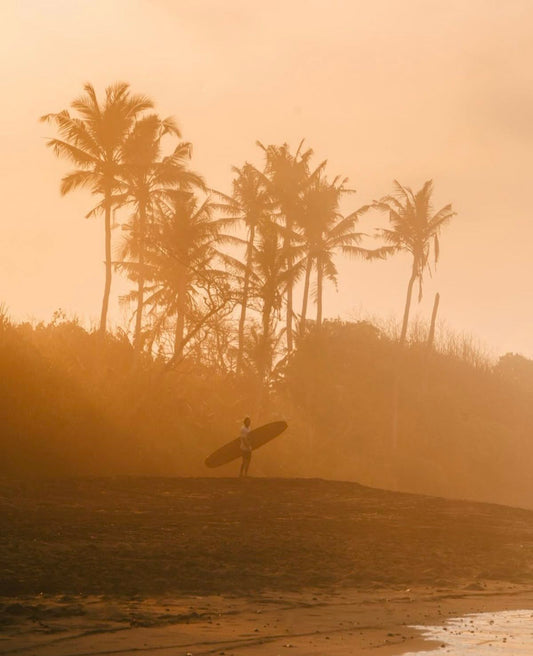When I first moved to Bali I imagined peace would come easy, that calm would greet me each morning through the window and wrap around me like the island breeze, and for a while it did, until I began to notice how quickly places changed and how what once felt still had become louder and more crowded than expected.

Canggu and Pererenan were once the sweet escape, but today the roads feel full before the day even starts and the energy that once felt creative and free now leans towards constant motion, and while there are still beautiful corners and comforting routines to be found, it can feel like your nervous system never truly gets to rest.

Ubud used to be the natural next step for peace seekers but these days it too is thick with traffic and lines and busy corners, and although the jungle is still lush and the energy still spiritual, I find it harder now to sit and be without feeling the presence of a crowd just around the bend.

That was when I began heading further north where Kintamani waits quietly with its cool mountain air and soft early light, and where simple cafes overlooking Lake Batur give you the space to breathe a little deeper and feel a little smaller in the best possible way, wrapped in fog and silence and views that stretch for miles.
There is something humbling about Bedugul too with its green open spaces and lakeside stillness, a place where glamping feels cozy instead of trendy and where strawberry farms and early market mornings replace digital noise and tight itineraries, offering the kind of ease that stays with you even when you return home.

If the sea is where you find calm then Uluwatu’s cliffs still hide beaches that take some effort to reach but are worth every step, beaches where you can lie down and let the sun melt your tension and where the only background noise is the tide coming in and out without asking anything from you in return.

On the days I feel like moving instead of stopping I take the long road and visit places like Menjangan or Tulamben or Amed, where the ride is slow and the views are wide and the journey itself becomes the practice of slowing down, with no rush to arrive and plenty of space to think or say nothing at all.

Diving in Tulamben always gives me a sense of scale and perspective that’s hard to put into words, and the quiet of underwater makes even my busiest thoughts go quiet for a while, while in Menjangan the calm comes from the way time seems to pause and the days stretch longer than they do anywhere else on the island.
And even in Denpasar where the world feels more lived in and less curated I’ve found gyms and shops and markets that let me slip into routines that feel personal and comforting, from flower stalls that know which color I like to small cafes that feel like mine because they have seen me on good days and hard ones without ever needing me to explain.

Photo courtesy of Raincoat Coffee (@raincoat.coffee) in Kerobokan, Bali.
I have found that peace comes not only from the places you visit but from the ones you return to again and again, from the repetition that builds familiarity and the little rituals that give shape to your days, like walking to your favorite corner for coffee or choosing your seat before someone else does.
These are the moments that soften the edges of the week and give your nervous system a reason to settle, the kind of quiet that does not ask for silence but simply asks for your presence and attention and reminds you that not everything has to be loud to be meaningful.
So if you are looking for calm here in Bali I hope you know it still exists, just not always where the crowd is looking and not always under the spotlight, but instead in the cool mornings and the hidden beaches and the long roads north, and in the ordinary places that start to feel like your own.
And when you are ready to rest a little deeper or need help letting go of the noise we are always here at Terapung, holding space for the kind of quiet that you carry with you long after you leave.




